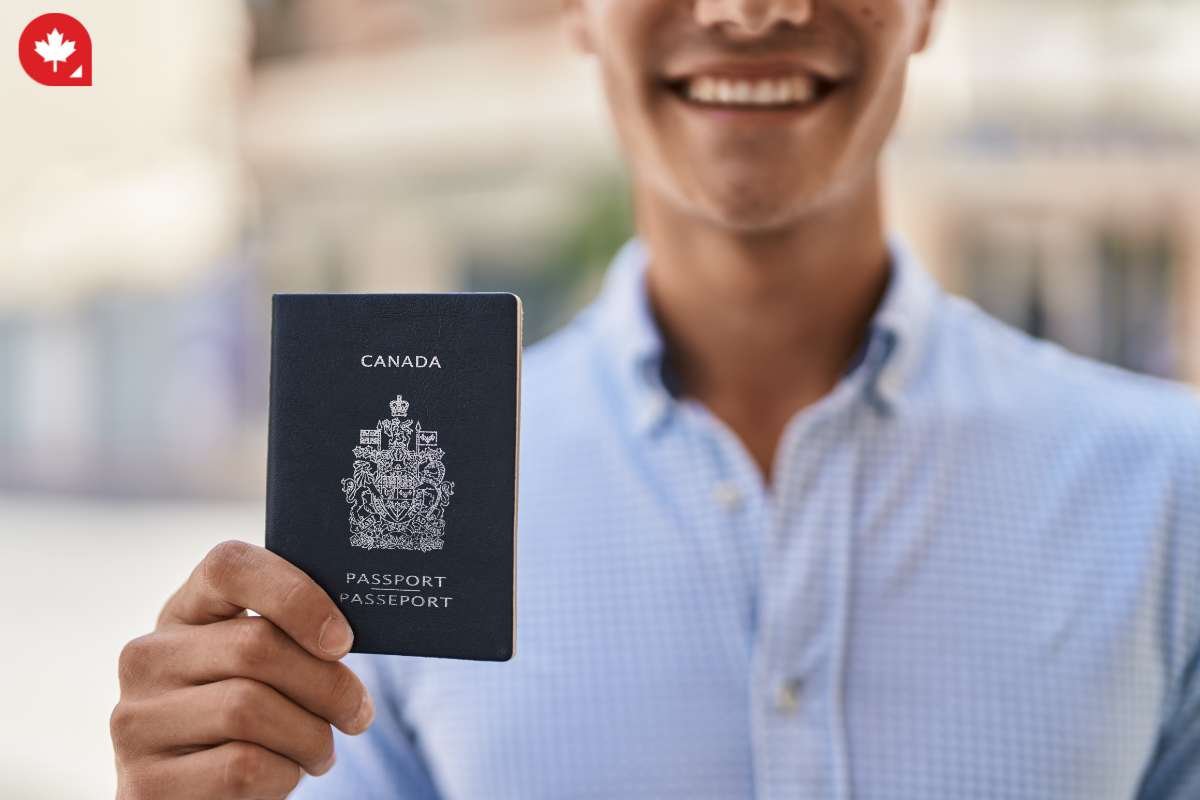Canadian immigration policies have garnered significant attention for their fairness, transparency, and adaptability to global mobility trends. Among the critical aspects of these policies is the process behind the issuance of visas, specifically the decision to grant single-entry or multiple-entry Temporary Resident Visas (TRVs). The Immigration, Refugees, and Citizenship Canada (IRCC) plays a central role in determining the type of visa issued to applicants. Understanding this decision-making process involves delving into the guidelines, factors, and operational procedures that govern IRCC’s approach.
If you want to know more about which factors guide the IRCC s decisions to issue single or multiple entry visas, then take a look at our guide which offers insight into this process.
What Are Single-Entry and Multiple-Entry Visas?

Before analyzing the decision-making process, it is essential to differentiate between single-entry and multiple-entry visas.
Single-Entry Visa
A single-entry visa is a type of Canadian visa that allows the holder to enter the country only once. Once the individual leaves Canada, the visa becomes invalid, regardless of its expiration date. If the traveler needs to re-enter Canada, they must apply for a new visa. However, there are exceptions for travelers going to the United States or St. Pierre and Miquelon under specific conditions.
Multiple-Entry Visa
A multiple-entry visa offers more flexibility for travelers visiting Canada. With this visa, holders can enter and exit Canada multiple times within a specific validity period. This period can range from a few months to up to 10 years, or until one month before the passport's expiration date, whichever comes first. Multiple-entry visas are ideal for frequent travelers who anticipate multiple trips to Canada within the visa's validity period. This type of visa eliminates the need to reapply for a new visa each time the traveler enters and exits the country.
How Does IRCC Decide Whether to Issue a Single or Multiple-entry Visa?
The type of Canadian visa you receive, whether it's a single-entry or multiple-entry visa, is determined by several factors. Let's explore the key considerations that IRCC takes into account when making this decision.
IRCC’s Policy Framework
IRCC’s visa policies are governed by the Immigration and Refugee Protection Act (IRPA) and its accompanying regulations. These laws aim to balance facilitating legitimate travel and safeguarding Canada’s security and interests. The standard practice, as per IRCC’s updated guidelines, is to issue multiple-entry visas wherever possible, unless there are compelling reasons to issue a single-entry visa instead.
This policy shift towards multiple-entry visas aligns with Canada’s objectives of streamlining travel, reducing administrative burdens, and enhancing the traveler experience. However, not all applicants qualify for multiple-entry visas, and the decision ultimately depends on specific criteria and the discretion of visa officers.
Factors Influencing the Decision
The decision to issue a single-entry or multiple-entry visa involves a multifaceted assessment. Some of the primary factors considered by IRCC include the following.
Purpose of Travel
The primary purpose of a visit to Canada plays a significant role in determining the type of visa issued. If an applicant is visiting for a specific, time-bound event like a conference or business meeting, a single-entry visa is more likely. However, if the purpose involves recurring travel, such as frequent business trips, family visits, or long-term studies, a multiple-entry visa might be granted.
Applicant's Travel History
A strong travel history, especially to countries with stringent visa requirements, can positively influence visa decisions. It demonstrates the applicant's adherence to immigration laws and responsible travel behavior. Alternatively, a lack of travel history or previous visa violations might lead to a more cautious approach, resulting in a single-entry visa.
Documentary Evidence
Comprehensive and convincing supporting documents are crucial for a successful visa application. Strong evidence, such as invitation letters, proof of financial stability, and return travel tickets, can enhance an applicant's chances of receiving a multiple-entry visa. Insufficient or inconsistent documentation may raise concerns and lead to a single-entry visa.
Duration of Stay
The length of your intended stay in Canada is a significant factor in determining the type of visa you'll receive. If you plan a short visit with a specific itinerary, a single-entry visa is more likely. However, if you need to make multiple trips over an extended period, for example, for business or studies, a multiple-entry visa is more appropriate.
Country of Residence and Nationality
Your country of origin can influence the visa process. Citizens of countries with strong ties to Canada or those with low immigration risk profiles often have a smoother experience. Alternatively, individuals from countries with higher immigration risk might face more stringent scrutiny and may be more likely to receive a single-entry visa.
Security and Risk Assessment
IRCC conducts thorough background checks to assess potential risks. Criminal history, past immigration violations, or any other security concerns can negatively impact your visa application. If any red flags are identified, you may be issued a single-entry visa or even face a visa refusal.
What is the Role of Canadian Visa Officers in Issuing Single or Multiple Entry Visas?

Visa officers play a critical role in IRCC’s decision-making process. They are tasked with assessing applications based on the evidence provided, immigration laws, and IRCC’s guidelines. Officers exercise a significant degree of discretion, particularly in borderline cases where the evidence does not clearly support one type of visa over the other. Key responsibilities of visa officers include:
Document Verification
IRCC carefully examines all submitted documents to ensure their authenticity and compliance with visa regulations. This process involves verifying the validity of passports, academic certificates, employment letters, and other supporting documents. Any inconsistencies or discrepancies can lead to delays or visa refusals.
Interviewing Applicants
In certain cases, IRCC may schedule interviews with visa applicants to clarify any ambiguities or inconsistencies in their applications. These interviews allow officers to assess the applicant's intentions, their understanding of Canadian immigration laws, and their ties to their home country. A successful interview can significantly improve the chances of obtaining a visa.
Risk Assessment
IRCC conducts a thorough risk assessment to evaluate the likelihood of an applicant overstaying or engaging in unauthorized activities in Canada. Factors such as the applicant's financial stability, strong ties to their home country, and a clear purpose of visit are considered. A higher risk assessment may result in a single-entry visa or even a visa refusal.
Automated Tools and Decision Support Systems
In recent years, IRCC has increasingly used technology to streamline visa processing. Automated systems, such as the Chinook tool, assist visa officers by organizing application data, identifying red flags, and expediting routine assessments. These tools are particularly useful in high-volume application environments, such as visa offices in countries with significant demand for Canadian visas.
However, automation does not replace human judgment. Final decisions, especially those involving complex cases, remain the responsibility of visa officers. The integration of technology aims to enhance efficiency and consistency while allowing officers to focus on nuanced aspects of applications.
Which Strategies Can I Use to Obtain a Multiple-Entry Visa?
Applicants can take proactive steps to improve their chances of receiving a multiple-entry visa.
Provide Comprehensive Documentation
Submitting clear and complete documentation is crucial for a successful visa application. Ensure that all required documents, such as passports, financial statements, and invitation letters, are included and well-organized. Any missing or incomplete documents can delay the process or lead to a visa refusal.
Demonstrate Travel Intentions
Clearly outline your reasons for multiple visits to Canada. Explain the specific purpose of each trip, such as attending business meetings, visiting family, or pursuing studies. A well-defined travel plan can strengthen your application and increase your chances of obtaining a multiple-entry visa.
Show Strong Ties to the Home Country
To reassure IRCC of your intent to return to your home country, provide evidence of strong ties. This includes proof of employment, property ownership, family responsibilities, or ongoing studies. Strong ties demonstrate that you have reasons to return home and are not intending to immigrate to Canada.
Maintain a Positive Travel History
A positive travel history, especially with previous visas, can significantly enhance your visa application. Adhering to visa conditions, respecting immigration laws, and avoiding any issues during past travels can positively influence the decision-making process.
Apply Early and Be Transparent
Applying well in advance of your planned travel dates allows sufficient processing time for IRCC. Be honest and transparent in your application, providing accurate and consistent information. Any discrepancies or misrepresentations can lead to visa delays or refusals.
FAQs
What Should I do if I Need to Enter Canada Again After Using my Single-entry Visa?
If you need to re-enter Canada after using your single-entry visa, you will need to apply for a new visa. This involves submitting a fresh application with all the required documents and fees.
Are All Applicants Automatically Considered For a Multiple-entry Visa?
No, not all applicants are automatically considered for a multiple-entry visa. IRCC evaluates each application individually based on various factors, including the purpose of travel, travel history, and the strength of ties to the home country.
How Can I Check the Status of my Visa Application?
You can check the status of your visa application online using the IRCC portal. You will need your application number and unique client identifier (UCI) to track the progress of your application.




